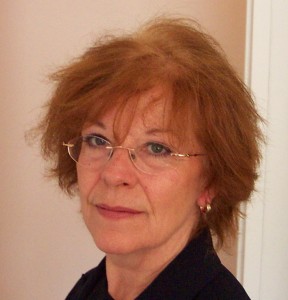What follows is Part One.
Part two is here – Forgiveness and Compassion.
Schizophrenia, And My Father’s Nightmare Life
It was through a phone call from my father’s minister that I learned of Dad’s impending death from colon cancer. The minister wanted to know whether I would consider visiting my father in the hospital, adding that it was he, not my father, who had pressed for this. He also told me that he had tracked down my brother, who had refused to have anything to do with Dad.
I would love to be able to say that I immediately agreed, but that would be a blatant lie. I told him I would call him back and let him know.
You see, my father abandoned my family when I was 15. He telephoned home one evening, said he couldn’t take it anymore, and promptly disappeared. His sudden departure left a gaping hole in my life, one which I compartmentalized nicely, accepting that somehow I had been such a rotten kid that my own father was forced to leave our family.
After carefully considering the minister’s request, I called him back and said I would go. I wanted to see Dad again — to try and make amends for whatever it was I had done.
I arrived with my two teenaged daughters at the hospital in Coaticook, Quebec, only to receive the second biggest shock of my life. The staff seemed so pleased to see us that I could not understand it. Then the head nurse took me aside and informed me that my father had had to be forcibly removed from his home, and upon being admitted to the hospital, had been diagnosed with schizophrenia. It was a disease about which I knew nothing.
There was another problem. Dad had accepted medication to help with his schizophrenia, but continued to refuse anything to deal with the pain of his colon cancer. None of the staff could understand it.
I was petrified … frightened to finally come face to face with the father I had not seen in almost 40 years, frightened that I would not recognize him, and even more frightened that he would not recognize me. The head nurse said, “Don’t worry, you’ll know what to say when you see him.”
I wanted to run, but one of the things about having your children with you in a time of crisis is that your inclination to try and set a good example is ingrained. It is also a fact that my daughters rose to the occasion.
THE HEALING POWER OF MUSIC
As we entered my father’s room, I could hear classical music blaring from his small sound system, right through the earphones he was wearing. The nurse explained that he was almost deaf, but he loved his music, and it seemed to be the only thing that gave him any respite from the pain. It was only then that I realized no one had told him I was coming. I guess they didn’t want to get his hopes up in case I chickened out.
The nurse went over and gently touched his arm, picked up the microphone he needed to hear, and told him he had visitors. He turned his head toward my daughters and me, and began to cry. “Bibi, you came. You really came,” was all he could say as he held out his arms.
I went to him immediately and held him, this suddenly skinny and frail old man, and the years of pain melted from my heart. My girls were introduced, and I could see the intense pleasure on his face as they called him, “Grand-père.”
He looked at me again, tears streaming freely from eyes that had once been bright and brown, but which were now a clouded teal, and filled with pain, and said, “I’m so sorry. I’m sorry about everything. Did they tell you I was crazy? I’m just so sorry.”
I was crying, too, and most especially because the nurse was wrong: I had no idea what to say. To the rescue came my eldest, in a moment that will live forever in my heart. She looked around in the room and pointed to the wheelchair. “Grand-père, are you sorry you need a wheelchair to get around?”
I saw a flash of the father I remembered, as Dad looked almost angry when he said, “No. That’s not my fault, I …” and then he smiled, as comprehension dawned. I was still holding onto him, as though I would never let go.
“That’s right, Dad. It’s not your fault. And I’m so happy to be able to see you, and to let you meet your granddaughters.”
During that visit, we did not speak of the past, but of the present. The past was too painful for either of us to touch, and I am certain that my father did not want to acknowledge the fact that my brother, even after all these years, wanted nothing to do with him.
We spoke, instead, of music. For as long as I could remember, my father would lose himself in good music, which he defined as classical. I held my breath, when he asked my youngest daughter who her favorite composer was, because I have always thought that the music she likes sounds as though it requires the sacrifice of a young virgin to be fully appreciated.
Once again, my offspring rose to surprising heights. Instead of answering, she took from my bag one of Barbara Lewis’ CDs, explaining that she liked lots of music, but she had heard this performed live, and thought he would like it.
I had brought the CDs to play in the car, while the girls listened to their preferences by earphones, but I’d forgotten to tell them that, according to my father, no really good music had been written in the past 100 years.
I shut the door of his room as Dad closed his eyes, and “Dolphin Dream” began to play through his earphones, at a decibel that even we could hear. A beatific look of peace passed over his countenance, and as fresh tears began rolling down his face, he opened his eyes and said, “Oh, how beautiful.”
He looked at my youngest and asked, “Where did you hear this?”
She explained, “Mom works for Barbara Lewis, who wrote and sings this. She does a show called Crossroads.”
It was the first time in my life that I remember my father looking at me with pride. I had done well. I worked for a “real” musician. It was my turn to cry. Again.
When I left my father that night, I headed with my daughters to our motel. I called Nicholas Regush, the late founder of Red Flags, and asked him about schizophrenia. He sent me some Internet links along with other information. And in that reading, I learned so much, which explained not just my pain or that of my family, but also the horror my father had gone through. As I read, tears slid down my face, thinking of the misery I had experienced as a kid with my father.
I have read that the children of alcoholics and addicts do not usually speak about it because of the shame. My father was neither an alcoholic nor an addict — just an undiagnosed schizophrenic. Growing up with someone who suffers from this mental syndrome can take a big toll on everyone.
My brother and I learned early that when Dad wanted to say something he thought was important, we were fully expected to run around and close windows, blinds and doors. A great deal of his conversation had to do with a mysterious “they,” whom we had never quite identified, but whom he was convinced were following him, listening to his telephone conversations and lying in wait for him. He trusted no one, and used everyone. That “their” intentions were harmful was never in any doubt to him.
MOVING TARGETS
We moved constantly. Dad would find a job; we would unpack and settle in to our new home, and then “they” would force my father to move us all again. We finally got to a point where we unpacked nothing but the basics. In my sixth grade, we moved four times in one year. I consider it a testament to lax educational standards that I still passed into grade seven.
Once, my brother and I disembarked from the school bus only to find a note on the door of our home, “We’ve moved. We’ll pick you up at five.”
Friendships were discouraged. All of our young friends had parents, any one of whom could be the one who was listening in on his phone conversations, reading his mail, stealing his mail, or spreading vicious rumors about him.
Often, during the night, I would hear classical music playing, and I would know that my father had experienced another terrifying encounter with that mysterious “they.” Did I know he was schizophrenic? No, I only knew that something was wrong. Did I still love him? Yes, he was my hero.
Once, when I was young, I had a dispute with a fellow first-grader who had stolen my lunch. I blackened both of his eyes. (I was not the lady my mother tried to raise.)
My first-grade teacher had to pull me off him, and tried to explain that I should learn to be reasonable. I had never heard the expression before, but I quite solemnly told her that I would speak with my father that evening, and let her know what he said.
That night, in a daring moment of bravado, I caught my father just before he was about to start listening to his favorite radio program of classical music. I told him what had happened, and waited for the words of wisdom I knew would come. Dad removed his glasses before he answered. “Bibi, when somebody tells you to be reasonable, they don’t want you to have what you want. Don’t do it.” I never have, and as strange as it sounds, I still realized most of the things I ever really wanted in life.
When I returned to the small hospital with my daughters the next day, the whole place seemed to be ready to roll out some kind of a welcoming mat, with the head nurse saying, “See, I told you you’d know what to say.”
My father had finally accepted medication to relieve him from the pain of his colon cancer. He died about two weeks later on March 13, 2004, lucid at the end, but in an ironic twist, surrounded by elderly people who had been sane for most of their lives, and were no longer.
______________
END OF PART ONE – PART TWO IS HERE – FORGIVENESS AND COMPASSION
(This article was edited by Sylvia Barrett in 2005.)



